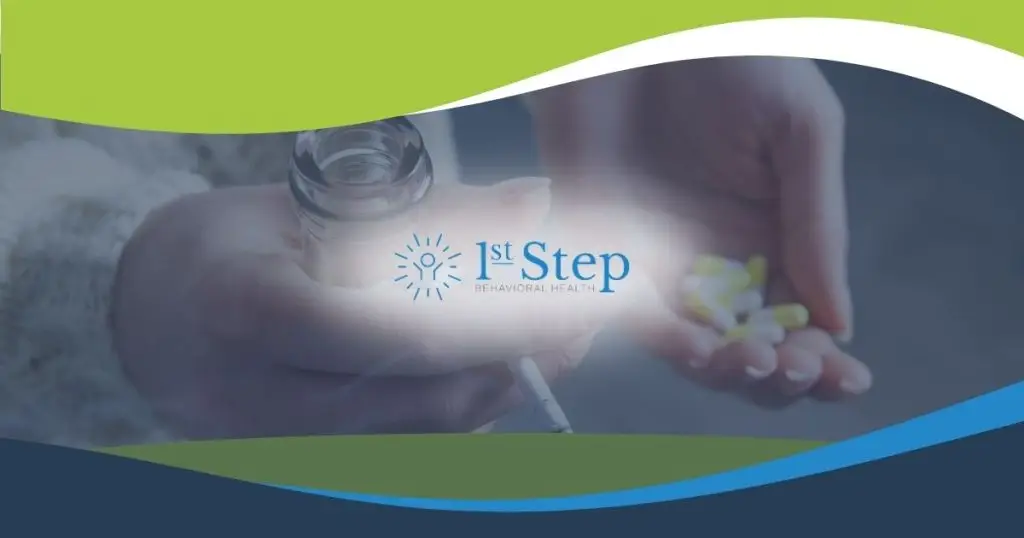Millions of people in the United States take prescription medications to manage the symptoms of medical conditions. Many prescription drugs can interact with other substances, including alcohol. Mixing prescription drugs and alcohol can have unintended, even life-threatening consequences.
Ambien is a prescription sleep aid. Doctors may prescribe Ambien to help patients struggling with insomnia or other health conditions. Some people misuse Ambien, which can lead to severe complications and risks.
Mixing Ambien and alcohol can be very dangerous. This article will explore what happens when you mix Ambien and alcohol. You will also learn about Ambien and alcohol abuse and where to find treatment for substance abuse.
Contact the specialists at First Step Behavioral Health to learn about our comprehensive addiction treatment programs. Our intake staff can recommend a level of care, verify your insurance, and schedule appointments. Contact us today to get started toward a healthier future.
What is Ambien?
Ambien is the brand name for a sedative drug called zolpidem. Doctors prescribe this hypnotic drug to help patients reduce symptoms of insomnia. More than 10 million zolpidem prescriptions are filled each year.
Insomnia is a sleep disorder caused by many factors, including mental health conditions and behaviors. Common symptoms of insomnia include:
- Struggling to fall asleep at night
- Waking up at night
- Waking up too early in the morning
- Daytime fatigue
- Depression
- Chronic anxiety about sleep
- Difficulty with memory and attention
Taking Ambien can relieve some of these symptoms and make it easier for people to get the sleep they need.
However, Ambien can cause unwanted short-term side effects, including:
- Headache
- Nausea and vomiting
- Daytime drowsiness
- Dizziness
- Diarrhea
- Poor coordination
- Daytime grogginess
- Feeling “sluggish” during the daytime
People who take Ambien for a long time are more likely to experience unwanted side effects.
In addition to these common side effects, some people experience more severe effects while taking Ambien. Some people may also misuse Ambien and become addicted to it.
Ambien Abuse and Risks
Like all medications, Ambien has risks. Some people may experience severe side effects, and some will become physically dependent on it. Here is an overview of the risks associated with Ambien use.
Severe side effects
Some Ambien users experience severe side effects, including:
- Depression with suicidal thoughts
- Aggression
- Anxiety
- Nightmares
- Behavioral changes
- Delayed reaction times
One of the most significant complications when taking Ambien is the potential for complex sleep behaviors. Some Ambien users may perform complex behaviors while sleeping. People may cook food, drive, walk, or do other activities while asleep.
People who perform these behaviors while asleep are unaware of their actions. They often have no memory of these behaviors when they wake up. These behaviors put people at risk of accidents, drowning, fires, and other life-threatening situations.
Risk of addiction
Some people who take Ambien do not experience sedation after taking this prescribed sleep aid. Instead, they experience euphoria. Euphoria is an intense, pleasurable feeling. People may like the way they feel while taking Ambien and begin to misuse it.
Ambien misuse includes:
- Taking a higher or more frequent dose of Ambien
- Taking Ambien more often than prescribed
- Taking Ambien without a prescription
Over time, people who misuse Ambien may develop a physical dependence on it.
Ambien addiction can change the way a person feels, thinks, and behaves. People who develop Ambien addiction are at risk of overdose. Ambien is a central nervous system depressant, and an overdose is life-threatening.
Symptoms of an Ambien overdose include:
- Dangerously slow heart rate and breathing
- Severe drowsiness
- Loss of consciousness
- Coma
Combining Ambien and alcohol can increase the sedative effects of both substances. It increases the risk of deadly central nervous system slowing.
What are the Dangers of Mixing Ambien and Alcohol?
Many people in the United States drink alcohol from time to time. Some struggle with alcohol abuse or addiction. When taking Ambien, it is crucial to avoid drinking alcohol.
But what are the dangers of mixing alcohol and Ambien? First, both substances slow central nervous system (CNS) activity. Combining depressants can lead to life-threatening complications, including:
- Dangerously slow heart rate
- Slow, shallow breathing
- Lack of oxygen to the brain
- Coma
- Death
Mixing Ambien and alcohol can also lead to dangerous disorientation and extreme confusion. They may engage in risky behaviors, including drinking more or taking more Ambien.
People who mix these substances may experience severe side effects, including a lethal overdose. It is important to stop drinking if you take prescription Ambien.
If you abuse Ambien or alcohol, you must seek substance use disorder treatment. A comprehensive treatment addiction program can help you overcome the physical, emotional, and behavioral aspects of your addiction and learn the skills to avoid relapse.
Find Help Now
If you or someone you love struggles with alcoholism or prescription drug abuse, you are not alone. Reach out to the caring specialists at First Step Behavioral Health to explore your treatment options or schedule an intake appointment.

